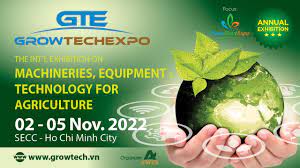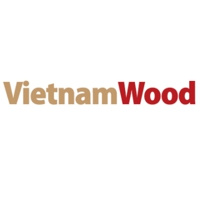- Read all
- Rice
- Fisheries
- Cassava
- Fertilizer & Pesticide
- Coffee
- Animal Feed
- Cocoa
- Seed
- Tea
- Wood
- Pepper
- Agricultural Cooperations
- Cashew
- Agricultural Investments
- Rubber
- Governmental Policies
- Sugarcane
- Agricultural Startup Ecosystem
- Corn
- Technological Innovations
- Spices
- Organic Agriculture
- Bean
- Food Manufacturing
- Fruit & Vegetable
- Agricultural Value Chain
- Flower
- Water & Waste Management
- Meat
- Processed Food
- Dairy
- Plant Originated Products
- General Agro Commodities
- Animal Originated Products
Israeli agriculture firms promoting more efficient irrigation
April 7, 2016
A TRADE delegation is promoting Israeli irrigation technology that helps cut costs and makes water use by farmers more efficient.
In a news conference yesterday in Makati, Effie Ben Matityau, Israeli Ambassador to the Philippines, said Israel’s technology permits “intensive” cultivation in desert areas where water is considered a precious resource.
He cited the country’s expertise in drip irrigation to promote maximum utilization of water without sacrificing the quality and yield of agricultural produce.
Drip irrigation delivers water to the base of each plant through a system of flexible irrigation tubing, drip emitters, and microsprays to distribute carefully targeted amounts of water.
“We have to look at water as a scarce commodity. Use it. Don’t abuse it,” said Mr. Matityau, who added that technology promises “more yield with less labor, less money, less water.”
The director of Water, Cleantech and Agro -- technology Department of the Israel Export and International Cooperation Institute Gilad Peled said that 70% of the world’s consumable water is used for agriculture.
Of the world’s total farmed area, only 5% uses micro-irrigation solutions, according to Mr. Peled, which the sector’s stakeholders hope to increase to 10% in the coming years.
“I believe in the next 10 years, you can see a lot of Israeli technology,” added Mr. Peled.
Agricultural productivity in Israel has grown dramatically since the early 1950s. Israel is known for having turned much of its arid land into fertile production areas.
In addition, domestic agriculture supplies most of the country’s food needs despite the country’s small size and limited arable land.
Meanwhile, the Ambassador said promoting Israeli techniques will require sharing knowledge and building local capacity.
“In technology transfer, [there needs to be] a foundation for capacity-building which means that the locals can absorb the technology, and understand the technology, and maximize their benefits,” said Mr. Matityau.
The Southeast Asia managing director of Netafim Ltd. Gal Yarden, said the adoption of Israeli methods requires the joint participation of farmers, government, and the private sector.
According to Mr. Yarden, financial solutions can come from the private sector or from the government as such is the case in India, where government aids farmers with the initial investment.
Netafim has been involved in the Philippines for about 30 years, mainly with the banana industry in Mindanao.
Beyond agribusiness, Mr. Yarden said: “We’re now looking more at how we can actually penetrate the small holder market and the other crops.”
In 2015, the Israeli Embassy launched a year-long “Thank you, Philippines,” to celebrate the decades friendship between the two countries, dating back to the sheltering of Jewish refugees from before the founding of Israel in 1948.
Israeli agricultural firms in the delegation are Agrotop Ltd., Bermad, BioFishency Ltd., Eshet Eilon, Metzerplas Cooperative Agricultural Organization Ltd., Netafim Ltd., ShneorSeed Ltd., and Tefen Flow and Dosing Technologies.
-- Janina C. Lim
Source: Business World
Related news
-
ASEAN cooperates on digitalization in aid of rural development
In rural regions, digitalization and technological innovation present both benefits and obstacles.September 5, 2022 -
Humanized native fish stocks, while preserving precious genes and having a sustainable income
Tuyen Quang has implemented many solutions to multiply indigenous fish stocks in order to conserve and multiply precious genetic resources in the face of the risk of depletion due to exploitation and threatened environment.August 9, 2022 -
Continue to spread the program of smart rice farming
With the great success of the period 2016 - 2022, Binh Dien and the National Center for Agricultural Extension will continue to maintain and spread the smart rice farming program.August 26, 2022 -
The Vinaseed rice variety set 'fascinates' farmers in Quang Ngai
From year to year, from the winter-spring crop to the summer-autumn crop, Vinaseed's rice varieties always show outstanding characteristics in the fields of Quang Ngai.August 24, 2022 -
New prospects for durian: investing in technologies to boost the value
To increase the value of the commodity chain, Dong Nai province is developing regions specializing in durian cultivation and encouraging investments in durian freezing facilities.August 17, 2022
Events See more

Vietnamplas 2022 - Vietnam International Plastic and Rubber Industry Exhibition
23-03-2023 - 26-11-2022 09:00 - 17:00
Saigon Exhibition and Convention Center (SECC) – 799 Nguyen Van Linh Boulevard, District 7, City. Ho Chi Minh.

GROWTECH EXPO - FLORAPLANTEXPO 2021
02 - 05-11-2022 09:00 - 17:00
Saigon Exhibition and Convention Center (SECC) – 799 Nguyen Van Linh Boulevard, District 7, City. Ho Chi Minh.

VTG 2022
18 - 25-10-2022 09:00 - 17:00
Saigon Exhibition and Convention Center (SECC) – 799 Nguyen Van Linh Boulevard, District 7, City. Ho Chi Minh.

VIETSTOCK 2022 - SPECIALISED EXHIBITION OF LIVESTOCK, FEED AND MEAT PROCESSING IN VIETNAM
12 - 14-10-2022 08:00 - 17:00
799 Nguyen Van Linh, Tan Phu Ward, Dist. 7, Hochiminh City, Vietnam

VTG 2022
21 - 27-09-2022 09:00 - 17:00
Saigon Exhibition and Convention Center (SECC) – 799 Nguyen Van Linh Boulevard, District 7, City. Ho Chi Minh.
.png)
VIETFISH 2022
22 - 26-08-2022 09:00 - 17:00
Saigon Exhibition and Convention Center (SECC) – 799 Nguyen Van Linh Boulevard, District 7, City. Ho Chi Minh.
Business Opportunities See more
-
BURANI INTERFOOD is looking for Buyers in Vietnam
Type:
November 22, 2021
-
BURANI INTERFOOD is looking for Buyers in Vietnam
Type: Wholesaling Meat
November 22, 2021
-
BURANI INTERFOOD is looking for Buyers in Vietnam
Type: Wholesaling Meat
November 22, 2021
-
BURANI INTERFOOD is looking for Buyers in Vietnam
Type: Wholesaling Meat
November 19, 2021
-
BURANI INTERFOOD is looking for Buyers in Vietnam
Type:
November 19, 2021
-
Indian purchaser looking for high quality cashew nut kernel from Vietnam
Type: Exporting Cashew
Mar 14, 2016
534
Limitless database of qualified and verified agricultural partners
124
Exclusive buy & sell leads on specific agricultural commodities
24
Agricultural events in Vietnam and Asia Pacific region
Stay informed!
Enter your email address below to receive updates each time we publishes new content
